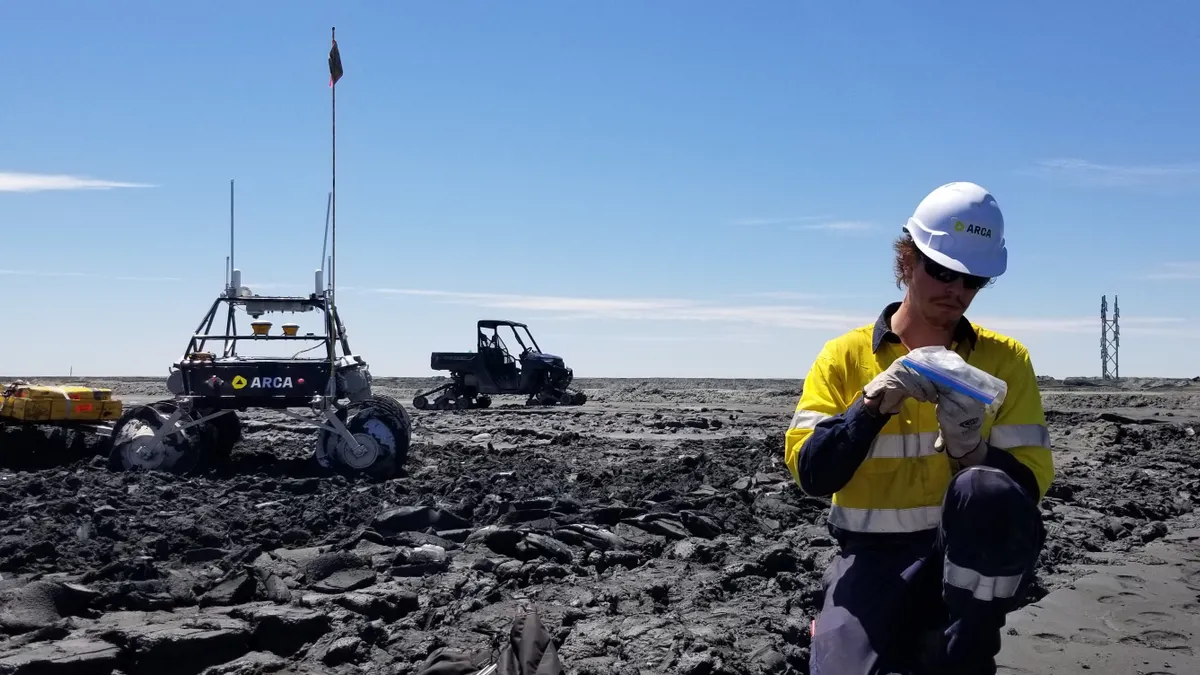Dive Brief:
- Microsoft has signed a deal to have Canada-based carbon removal company Arca remove 300,000 metric tons of carbon dioxide through industrial mineralization, a process that converts CO2 into solid carbonate materials, according to a Wednesday release.
- Arca’s removal and storage process utilizes a mine waste as feedstock, and increases the waste’s reactivity before exposing it to air to accelerate the natural process of carbon mineralization.
- The deal further diversifies Microsoft’s carbon dioxide removal portfolio, which also includes investments in biochar, forestry-based, enhanced rock weathering and marine carbon removal pathways.
Dive Insight:
Microsoft has goals to become carbon negative by 2030 and remove all the carbon it has emitted into the environment since it was founded, either directly or by electrical consumption, by 2050. Phil Goodman, director of the technology and software systems company’s carbon dioxide removal program, said in the Oct. 29 release that the agreement with British Columbia-based Arca expands Microsoft’s portfolio “into a pathway that combines scalability and permanence.”
Arca’s industrial mineralization process helps draw down and sequester additional carbon dioxide from the atmosphere by utilizing mine tailings — the waste remaining after mineral extraction — and using “high-intensity energy bursts” to make the tailings more reactive, according to the company’s website. The resulting feedstock is then exposed to the air, and begins an accelerated form of the natural process of carbon mineralization, and autonomous rovers are used to continuously monitor and verify the carbon capture rate.
“We have a unique opportunity to utilize one form of waste (mine tailings) to neutralize another (excess atmospheric CO2). The result is less waste and a healthier environment,” Arca CEO Paul Needham said in the release. “This agreement with Microsoft validates industrial mineralization as a viable pathway for durable carbon removal with the potential to scale and meaningfully contribute to global climate goals.”
Microsoft was given confidence in the effectiveness Arca’s technology and its carbon sequestration ability by Arca’s first full-scale mineralization demo project, Goodman said in the release. Arca completed the project earlier this year at an active mine site and is looking to expand from the pilot phase to “million-tonne operations,” according to the release.
Microsoft has increasingly explored nature-based carbon removal and storage pathways. The Arca deal was announced shortly after Microsoft and climate tech company UNDO announced their third, and largest, enhanced rock weathering removal deal to date. This year, Microsoft has also signed an enhanced rock weathering removal deal with CO280, multiple forestry-based offtake and removal deals and topped Google for the “world’s largest biochar removal” deal.
In July, the tech giant and carbon management company Carbon Direct released updated carbon dioxide removal standards and guidance that spanned nine removal pathways, including carbon mineralization.











